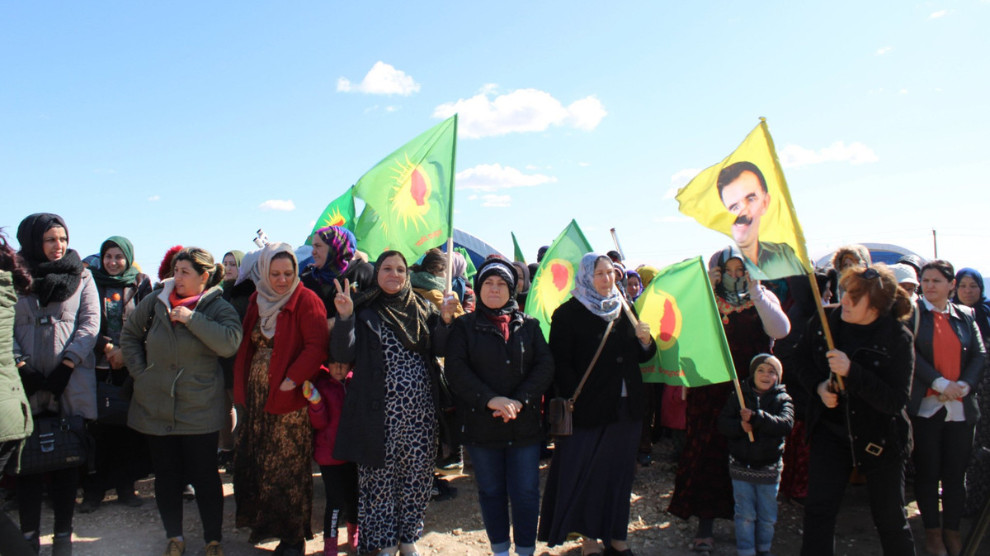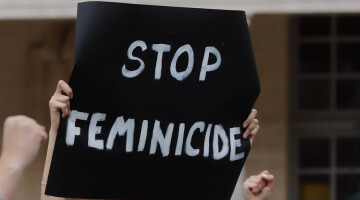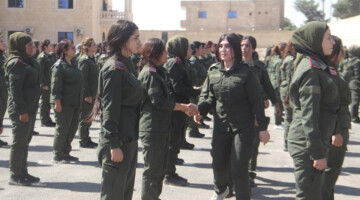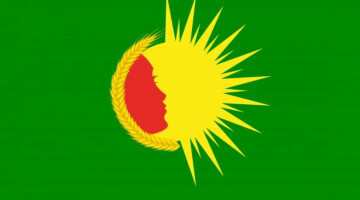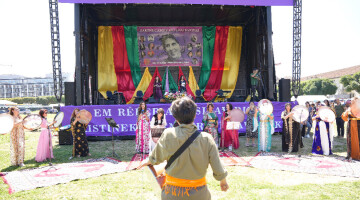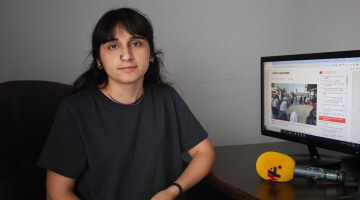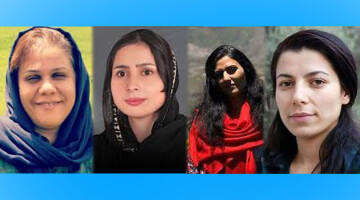Two women's centres for female refugees have been set up in the Washokani camp in north-eastern Syria, which was established west of the cantonal capital Hesekê in the town of Tiwêna for displaced persons from the Turkish occupation zone. They offer the women a forum for self-organisation, the maintenance of their revolution and the democratic system in Rojava, but also a break from everyday life in the camp and space for learning new skills. The women's centres are offered by the umbrella organisation of the Kurdish women's movement in the self-governing areas of northern and eastern Syria, Kongreya Star, the Free Women's Foundation Syria WJAR (formerly "Foundation of the Free Women in Rojava") and the Women's Council for Social Justice of the federal Cizîrê region.

"Turkish occupation will not stop women's revolution"
As usual in Rojava, the women's centres in the Washokani camp were also ceremonially opened. Around 9,000 people now live in the tent city for displaced people from Serêkaniyê (Ras al-Ain) and Girê Spî (Tal Abyad), which was built by the autonomous administration and the Kurdish Red Crescent (Heyva Sor a Kurd) without any support from international aid organisations. The majority are women and children. Many of them attended the opening ceremony.

After cutting the green ribbons of both centres, one of them the "Mala Jin" (Women's House), the welcome was followed by speeches. Among the speakers was Selwa Ahmed from the board of Kongreya Star in Serêkaniyê. The activist first explained that the Turkish occupation could not stop the revolution of the women of Rojava. Then she pointed out the efforts of Turkey and its Islamist partners to extend the Turkish occupation zone to all areas in the border strip.
"The attacks on the IDPs and the people who remained in the occupation zones, especially women, continue unabated. While the expulsions and killings in Serêkaniyê and Girê Spî have been carried out with the de facto approval of international forces, the great silence continues afterwards as well. We call on relevant institutions to distance themselves from this attitude and to finally take action.”


